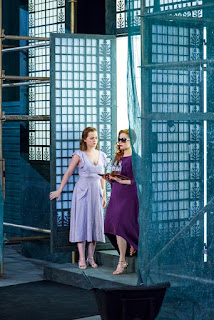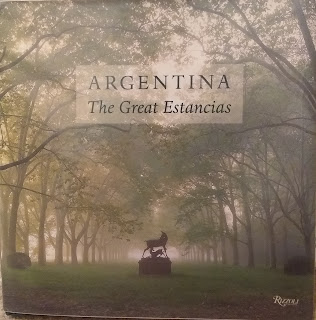The Frogs by Aristophanes is this week’s play. It was performed in what now look like the waning days of Athens, just before their conquest by Sparta, and in particular the last days of Athenian tragedy, with Euripides and Sophocles both recently dead. In what may be the most outrageous conceit of Aristophanes, Dionysus, understandably worried about the quality of the plays at his festivals, travels to Hades to retrieve Euripides to save his festival, and to save Athens. “I need a poet who can write,” Dionysus says (tr. David Barrett, p. 159). But once he gets to Hades, it turns out there are options.
The first half of the play is the journey to Hades by
Dionysus and his servant. Here we find
the famous chorus of the frogs:
FROGS: Brekeke-kex, ko-ax, ko-ax,
Ko-ax, ko-ax, ko-ax!
Oh we are the musical Frogs!
We live in the marshes and bogs!
Sweet, sweet is the hymn
That we sing as we swim,
And our voices are known
For their beautiful tone… (164)
I cannot guess how often I have seen writers, modern
writers, quote those frogs.
The second half of the play contains a duel between
Euripides and Aeschylus over who is the better poet. Sophocles if of course above all this
nonsense. The debate, whatever
ridiculous turns it takes, is genuine, a real contrast of the aesthetic ideas
of the two poets. It is the invention of
Western literary criticism, perhaps a hundred years before Aristotle’s Poetics,
which, by the way, I invite you to read along with me next week. Some of the terms of the debate are obscure
for us, and not just us:
DIONYSUS: Brilliant! Brilliant! Wish I knew what you were talking about! (198)
But many are clear enough from the plays we have. A surprising number of the plays mentioned
are ones we have, which may say something, although I do not know what, about which
plays survived;
AESCHYLUS: Then I put on The Persians: an effective sermon on the will to win. Best thing I ever wrote.
DIONYSUS: I loved that bit where they sang about the days of the great Darius, and the Chorus went like this with their hands and cried ‘Wah! Wah!’ (194)
Dionysus is perhaps not the most sophisticated theater-goer.
If The Frogs were some poor reader’s first Greek play
it would likely be gibberish. Too
inside. I mean, the first line of the play is literally a joke
about jokes:
XANTHIAS: [surveying the audience unenthusiastically]: What about one of the old gags, sir? I can always get a laugh with those. (156)
But for those of us who have made it to this point in the
readalong, The Frogs is like a reward.
I illustrated this post with two performance stills of the weighing of
the poetry of Euripides and Aeschylus, one from 1947 and one from 2013, both
from the Cambridge Greek Play site.
Next week is the last surviving tragedy, Oedipus at
Colonus by Sophocles, performed posthumously in 404 BCE, or perhaps 401 BCE,
or perhaps some other time. It makes a
fine ending to this great tradition.



















